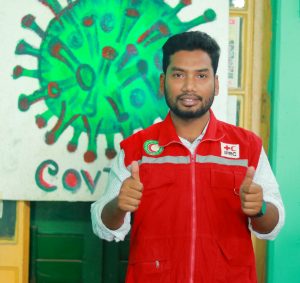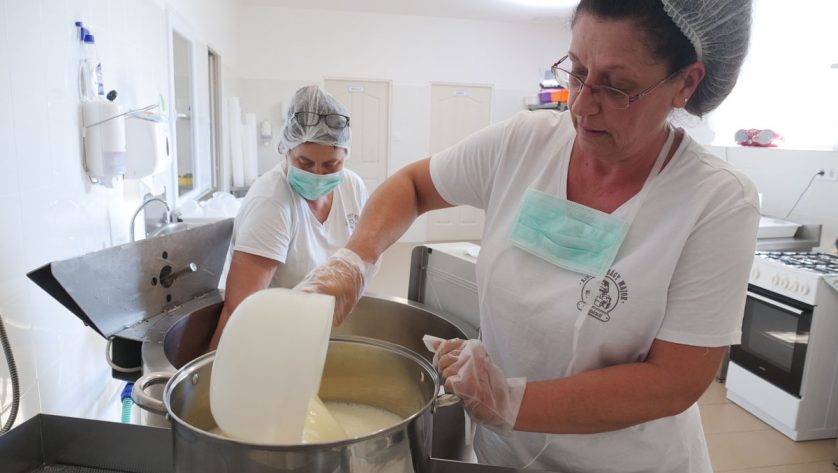The road to recovery
Rebuilding their homes and recovering their livelihoods is not easy, especially after disasters like this. The Bangladesh Red Crescent Society arrived in the community shortly after the floods to provide people with a lifeline to start from scratch. With a cash assistance of 4,500 Taka (about USD 40), many families were able to fix their homes, invest in new livelihoods, or even pay for urgent health expenses.
“I had a cataract in my right eye. I used part of the money to get surgery,” Mosammat said. “I used the rest of the money on my cattle and household.” In addition to the cash grant, the BDRCS also provided seeds like okra, eggplant, pumpkin, and bitter gourd for families to grow their own vegetable gardens.
Despite the ongoing risks, Mosammat is proud of how far her family has come after the floods. Now the owners of a few goats and a cow, they have found new ways to support themselves. “There will always be a risk of getting flooded,” she says. “But people like us who have nowhere to go, we pull together whatever we can and try to rebuild our homes somewhere safer.”
 Red Cross Red Crescent magazine
Red Cross Red Crescent magazine 






 Tech & Innovation
Tech & Innovation Climate Change
Climate Change Volunteers
Volunteers Health
Health Migration
Migration